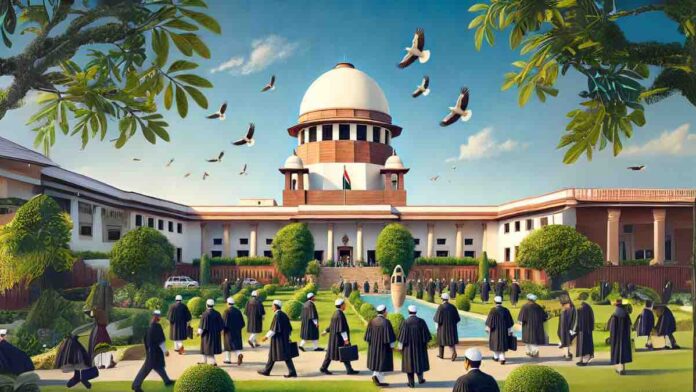The Supreme Court has dismissed the appeal filed by the State of Rajasthan challenging the acquittal of an accused in a murder case, holding that the recovery of a blood-stained weapon matching the victim’s blood group is not sufficient to establish guilt. The Court affirmed the Rajasthan High Court’s decision acquitting the accused due to
To Read More Please Subscribe to VIP Membership for Unlimited Access to All the Articles, Download Available Copies of Judgments/Order, Acess to Central/State Bare Acts, Advertisement Free Content, Access to More than 4000 Legal Drafts( Readymade Editable Formats of Suits, Petitions, Writs, Legal Notices, Divorce Petitions, 138 Notices, Bail Applications etc.) in Hindi and English.




